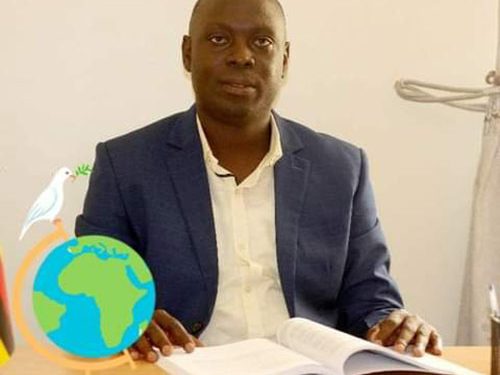By: Faruk Kirunda
Rev. Fr. Richard Mugisha of Nativity of Our Lady Bisanje parish launched a scathing attack on the National Resistance Movement (NRM) in general and individuals in government in particular.
A clip circulated on social media showing the cleric spitting fire during a sermon.
First of all, it is okay to criticise government, or any institution or person, for that matter. When something is not going very correctly, any citizen can come up and point out what is amiss or needs correcting. However, it matters how the criticism is leveled; is it fair, is it balanced, are the accused given a fair hearing?
I don’t know what prompted the man of God to pour out such criticism but he seemed eager for his moment in the limelight riding on controversy.
The Reverend complained about (the state of) roads in the Kyotera area; the cost of goods such as sugar and services like education. All that is understandable because we are all Ugandans affected by economic pressures and service delivery shortfalls. He accuses parishioners of voting wrongly, that they would have better services and be more self-reliant instead of, allegedly, relying on handouts.
From his vehemence in attacking Vice President Edward Ssekandi and Minister of State for Microfinance, Haruna Kasolo, to whom he directed blame, I almost thought he has personal vendetta against them. It is not a bad idea to question them to account for their time in service. However, the two are not the only leaders in Kyotera and Masaka.
The woman MP of Kyotera district is a member of the Democratic Party; Masaka district is dominated by DP leaders including the LC 5 chairman, MPs (Bukoto East and Masaka Municipality) and a Mayor who belongs to FDC. How come the Rev. Fr. does not mention these or put them in a similar spotlight as the NRM leaders?
More so, isn’t it the people in that area who determine who their leaders should be, something they do regularly through elections? Who is Mugisha to question their wisdom in choosing their leaders? He goes on to indulge in direct incitement by talking of shedding blood and going sectarian, including dragging in the First Lady without according her a “hearing”.
The mass clearly took a political line with biased and inciting statements unexpected of a religious leader. The clergyman’s statements were clearly partisan and engineered to offend the Constitutional order of Uganda since certain categories of people are by law barred from making partisan pronouncements. Those include religious leaders, cultural leaders, diplomats and judicial officers.
If Fr. Mugisha feels that the urge to engage in politics has overwhelmed his clerical commission, he would be better off resigning from the church and join the trenches of politics.
Was he speaking on his own behalf or on behalf of the church? If it is the latter case, that would be a dangerous line to pursue because sectarianism brewed in divine places is usually disastrous. Let us not even go there!
Does the Rev. Fr. wish to tell the world that his church is not attended by NRM supporters or those who see the good that NRM has done? And if only opposition supporters were in attendance during his divisive sermon, did they come to church to listen to politics? There is a time and place for everything, says the Bible.
By going personal and partisan, Fr. Mugisha exposes himself to commensurate reprisals because that is the language and culture of politics. Does he want us to believe that politicians have failed in their job and for him he is doing wonders? Can he prove to the world that he has scored a hundred percent in spiritually nourishing citizens and people are not sinning anymore?
Is he so pure and can perform miracles? Why doesn’t he pray for the leadership to work better? Does he only see the bad things and never the good things? What does he have to say about the overflowing religious freedoms?
It is wrong to use the pulpit to speak politics because the congregation can’t answer back yet politics is about exchange of ideas unlike preaching which is a one-way impartation of divine knowledge.
The very fact of using the pulpit to pour scorn on NRM and continuing to live normally should remind Fr. Mugisha that NRM is democratic and a guarantor of freedom of worship and expression for all.
His invitation of martyrdom is futile because it won’t happen under NRM. Under another regime, he would have been dragged away before stepping off the pulpit never to be seen again; but at the same time, Uganda is not lawless; when law is broken, the offender is called to account and that should never be classified as persecution.
Unserious characters should not try to drive a wedge between the state and church.
So much is at stake as witnessed in places where innocent blood has been shed due to the confusion of hypocritical clergy. Partisan politics should be left to politicians and matters of faith to believers and clerics!
The author is a Presidential Assistant in Charge of Media Management





